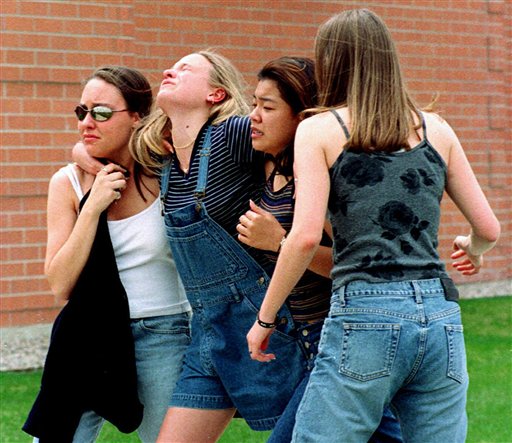In Lavine v. Blaine School District, 257 F.3d 981 (9th Cir. 2001), the Ninth Circuit Court of Appeals ruled that school officials did not violate a student’s First Amendment right of free expression when they temporarily expelled him for submitting a violent-themed poem to his English teacher.
This federal appeals court decision symbolizes the delicate balance between protecting students’ free expression rights and respecting school officials’ duty to provide a safe learning environment in a post-Columbine environment.
Lavine expelled after writing school shooting-themed poem
The case involved high school student James Lavine from Blaine School District in Washington state, who wrote a poem about a school shooter after the shooting at Thurston High School in Springfield, Oregon. Lavine’s poem, entitled “Last Words,” examines the mindset of a student who kills his classmates and then expresses remorse.
Lavine took the poem to school in October 1998 to show his English teacher, who had encouraged her students to write creatively on their own time. After Lavine’s teacher expressed concern that the student might harm himself or be crying out for help, school officials decided to “emergency expel” James for fear that he might cause harm to himself or other students at school.
Did punishment for poem violate First Amendment rights?
Lavine and his father sued in federal court, contending that school officials violated his First Amendment rights by punishing him for the content of his poem. Lavine also claimed that school officials violated his free expression rights by refusing to remove negative documentation about the incident in his student file.
In 1999 a federal district court ruled in favor of the Lavines on both counts. The district court determined that the school officials overreacted and that they should not maintain any negative documentation about James as a result of the incident.
9th Circuit upheld expulsion, looked at context of school shootings
A three-judge panel of the Ninth Circuit reversed in 2001, reasoning that the case must be understood against the backdrop of Columbine and other school shootings.
The appeals court applied the Supreme Court’s test from Tinker v. Des Moines Independent Community School District (1969), which asks whether school officials could reasonably forecast that the student expression might cause a substantial disruption of school activities, against the “totality” of the surrounding facts, which included James’s past disciplinary record, a domestic dispute he had with his father, and the violent content of the poem.
The Court concluded that “Taken together and given the backdrop of actual school shootings … these circumstances were sufficient to have led school authorities reasonably to forecast substantial disruption of or material interference with school activities—specifically, that James was intending to inflict injury upon himself or others.”
The appeals court did uphold the district court’s injunction against maintaining negative documentation about James as a result of the incident. “The school need not permanently blemish James’s record and harm his ability to secure future employment,” the court wrote.
Lavines were denied review of decision; some judges were critical
The Lavines sought en banc review, but the Ninth Circuit denied it in Lavine v. Blaine School District (9th Cir. 2002). Three judges dissented from the denial of review, including Judge Andrew Kleinfeld, who feared that the decision would force students to “hide their art work.”
He opined:
School officials may now subordinate students’ freedom of expression to a policy of making high schools cozy places, like daycare centers, where no one may be made uncomfortable by the knowledge that others have dark thoughts, and all the art is of hearts and smiley faces. The court has adopted a new doctrine in First Amendment law, that high school students may be punished for non-threatening speech that administrators believe may indicate that the speaker is emotionally disturbed and therefore dangerous.
The Lavines petitioned for Supreme Court review, but it denied cert on June 28, 2002.
This article was originally published in 2009. David L. Hudson, Jr. is a law professor at Belmont who publishes widely on First Amendment topics. He is the author of a 12-lecture audio course on the First Amendment entitled Freedom of Speech: Understanding the First Amendment (Now You Know Media, 2018). He also is the author of many First Amendment books, including The First Amendment: Freedom of Speech (Thomson Reuters, 2012) and Freedom of Speech: Documents Decoded (ABC-CLIO, 2017).

